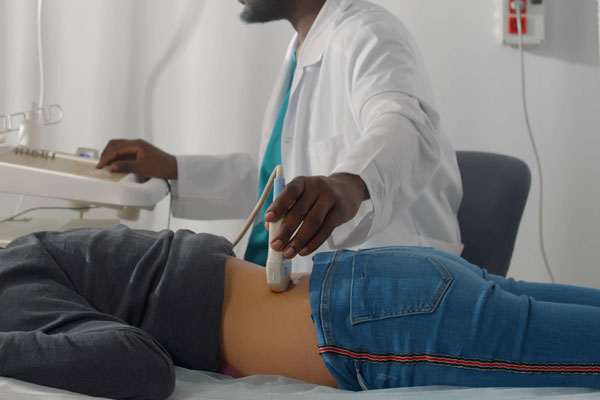Kidney Disease Resources
The National Kidney Foundation and American Association of Kidney Patients offer extensive educational content about kidney disease.
Additionally, these resources provide helpful information about living with kidney disease.


St. Louis Kidney Doctors Site Glossary
Anemia
Anemia results when red blood cells are in short supply. Red blood cells carry oxygen from the lungs to the entire body, supplying energy for daily activities. Kidneys produce an important hormone called erythropoietin (EPO), which acts as the signal for the body to make red blood cells. When the kidneys don’t produce enough EPO to trigger more red blood cells, anemia can develop. Some symptoms of anemia may include fatigue, pale color, poor appetite, dizziness, difficulty sleeping, shortness of breath, etc.
Acute Renal Failure
Acute renal failure is the sudden and dramatic loss of kidney function. This condition develops rapidly – often in just a few days. Because treating the causes of acute renal failure takes time, your body will be unable to remove the waste from the bloodstream. To remove the toxins from the bloodstream and help you feel better, the typical treatment protocol is dialysis. Dialysis is the recurring procedure for clearing out the toxins, waste and other unwanted fluids from the bloodstream that failing kidneys are unable to do.
Chronic Kidney Disease
Chronic kidney disease (CKD) is a condition characterized by a gradual loss of kidney function over time. Chronic kidney disease may be caused by diabetes, high blood pressure, and other disorders. Early detection and treatment can often keep chronic kidney disease from advancing.
There are five stages of disease progression with CKD.
- Kidneys function normally, but there is proteinuria present (protein in the urine). This can be an indication of future compromised kidney function.
- Kidney function is greater than 60%. Proteinuria may or may not be present.
- Kidney function is at 30-59%.
- Kidney function is at 15-29%.
- Kidney function registers below 15% and the patient may require dialysis at any time based on certain symptoms. Close supervision is necessary because this stage is a critical time.
Diabetic Kidney Disease
Diabetic kidney disease is characterized by a decrease in kidney function in patients with diabetes. Its cause can be related to many factors. Risk factors linked to diabetic kidney disease include high blood pressure, poor glucose control, diet, and inherited tendency.
Dialysis
When your kidneys fail, dialysis keeps your body chemically balanced by removing waste, salt, and extra fluids to prevent them from building up in the body. Dialysis also keeps a safe level of certain necessary chemicals in your blood, such as potassium, sodium, and bicarbonate. This helps maintain blood pressure. Dialysis can be done in a hospital, in a dialysis center separate from a hospital.
Electrolyte Disorders
Kidneys help maintain electrolyte levels by regulating concentrations in the body. If there is a disturbance in this function because of kidney disease, an electrolyte imbalance can result. Patients with renal failure may have increased potassium, phosphate and magnesium levels and decreased sodium and calcium levels. It is common for kidney disease patients to have electrolyte disorders.
Hypertension
Hypertension is an elevated blood pressure in the arteries. High blood pressure is a leading cause of kidney disease, heart attacks, and strokes. Most people with high blood pressure do not have any symptoms. One can have high blood pressure for years without knowing it. In most adults, there is no identifiable cause. It cannot be cured, but it can be managed.
Glomerulonephritis
Glomerulonephritis is the inflammation of the micro filters in the kidneys. These filters play an important role, removing excess fluid, electrolytes and waste from the bloodstream. Severe or prolonged inflammation can damage the kidneys. Treatment depends on the type of glomerulonephritis present.
Kidney Stones
Kidney stones increase the risk of developing chronic kidney disease. Those who have developed one stone are at approximately 50% higher risk for developing another stone within five to seven years. Diagnosis of a kidney stone starts with a medical history, physical examination, and imaging tests.
Metabolic Acid-based Disorders
Commonly found in patients with chronic kidney disease, metabolic acidosis is a condition in which the body’s acid content is abnormally elevated. With acid buildup, kidney function is impaired and can result in damage to the kidneys. Proper management of metabolic acid-based disorders can slow the progression of chronic kidney disease.
Polycystic Kidney Disease
Polycystic kidney disease (PKD) is the presence of multiple cysts in the kidneys. If too many fluid-filled cysts grow or get too big, the kidneys can be damaged and lead to reduced kidney function or even failure. PKD is the 4thleading cause of kidney failure. Back pain or side pain, a distended abdomen, blood in the urine, and frequent bladder or kidney infections are just some of the symptoms associated with PKD.
Post Kidney Transplant Care
Success of your transplant depends on several factors. You must see your transplant team on a regular basis, take your anti-rejection medications daily, continue regular lab tests and clinic visits to ensure your kidney(s) is working as needed, and follow a healthy lifestyle that includes a proper diet, exercise, and weight loss if advised.
